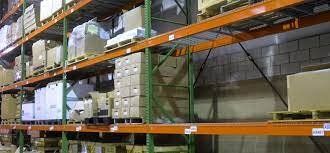Hoboken, NJ – (Date) – Healthcare supply chains provide a critical lifeline to patients. They need to work efficiently to help save lives and alleviate suffering. Alexander Rekeda,an investor at a medical supply company, says optimizing these chains not only ensures positive patient outcomes but also reduces associated costs.
He says healthcare providers benefit from increased revenues thanks to the lower costs of acquiring critical supplies. More importantly, they can enhance the quality of care for all patients. On the other hand, the supply chain in this sector is fraught with significant challenges that require innovative solutions. In some cases, healthcare providers require overnight deliveries to deal with emergencies.
According to Alexander, these requirements can negatively impact the hospitals’ bottom lines. Another reason for overnight deliveries is ineffective inventory management practices at medical facilities. Thankfully, technology provides some answers to this problem.
Common issues and possible solutions
A myriad of challenges requiring corrective action includes hidden costs. Alexander has seen how many healthcare providers focus on price variances and other factors. They often risk being overcharged. The good thing is that healthcare software enhances transparency. That way, it’s easier to adopt a more comprehensive approach to managing product shipments and costs.
Many healthcare providers encounter product recalls due to quality issues. These recalls cause considerable problems with service delivery, resulting in bottlenecks. The FDA can order some recalls necessitating the need to adopt a recall plan by the manufacturers and hospitals. Rekeda recommends forming partnerships to boost response times when faced with this challenge.
One approach is reverse logistics for optimized returns handling. As a result, extra logistics processes don’t affect inventory requiring special care. An example of items with special handling requirements includes medical equipment with lithium-ion batteries. These units come with significant transportation challenges.
Alexander believes that enrolling the help of specialized third-party providers optimizes the reverse supply chain. Materials get delivered to the manufacturer without compromising their state.
Climate control
Most pharmaceutical and medical inventory require climate control in transit and storage. This requirement complicates medical logistics since extreme temperatures affect efficacy. It’s super-important to keep track of temperature information at various stages of the shipping process. Healthcare providers need to identify potential quality issues based on the data of medical shipments.
If healthcare providers fail to identify unsuitable temperatures during transit, patients may not get quality treatments. That’s why smart packing, climate tracking devices, and other technologies are vital. Adopting the latest temperature control and monitoring technology saves stakeholders a substantial amount of money, enhancing the quality of care for patients.
About Alexander Rekeda
Based in Hoboken, NJ, Rekeda boasts vast experience in investing in medical supply logistics and other asset classes. He gets involved in humanitarian aid organizations when he’s not at the office. Several organizations benefit from his administrative support. He brings a wealth of expertise from the corporate world to the humanitarian space. Unity for Freedom is one of the non-profit organizations that Rekeda works with.




















 sunrise
StableDiffusion
sunrise
StableDiffusion
 bonfire friends
StableDiffusion
bonfire friends
StableDiffusion
 sadness
StableDiffusion
sadness
StableDiffusion

 purple skies
StableDiffusion
purple skies
StableDiffusion

 true love
StableDiffusion
true love
StableDiffusion
 My Cheerleader
StableDiffusion
My Cheerleader
StableDiffusion
 womans transformation to happiness and love
StableDiffusion
womans transformation to happiness and love
StableDiffusion
 future life together of adventures
StableDiffusion
future life together of adventures
StableDiffusion





















